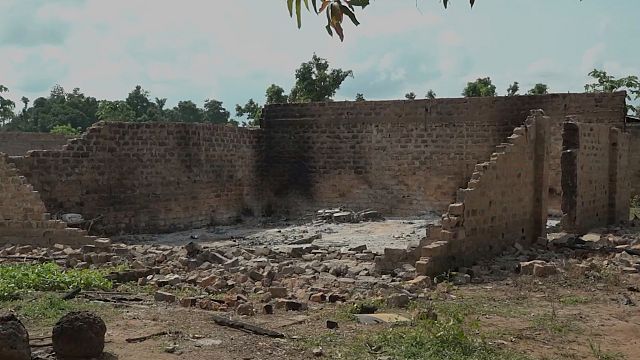In the vast expanse of Nigeria’s northwest, where the mineral-rich lands hold both promise and peril, a recent clash between armed gunmen and security forces has once again brought the region’s simmering tensions to the forefront. The news of at least 30 gunmen meeting their end in a fierce counter-attack by Nigerian security forces reverberated across the country, underscoring the ongoing struggle for stability in the face of rampant violence.
The events unfolded with a grim familiarity – armed men descending upon unsuspecting villages under the cloak of night, spreading fear and chaos in their wake. But this time, the response was swift and decisive. A coordinated effort by police and military units launched a daring operation to confront the assailants head-on. The clash was fierce, claiming the lives of three valiant police officers and two soldiers in the line of duty.
It’s a stark reminder of the relentless cycle of violence that has gripped Nigeria’s northwest and north-central regions, where communities live under the constant shadow of armed groups seeking to assert their dominance through bloodshed and terror.
The attacks, though tragic, were not isolated incidents. In recent months, these regions have witnessed a disturbing escalation in violence, with armed gangs unleashing a wave of brutality on unsuspecting locals. The toll has been heavy, with hundreds left dead or maimed in the wake of these ruthless assaults. The perpetrators, often referred to as bandit groups, operate with impunity, striking fear into the hearts of those they target.
These bandit groups, comprised largely of former herders locked in bitter disputes with settled communities, have become emblematic of Nigeria’s fractured social landscape, where historical grievances fuel contemporary conflicts.
The vast, untamed expanses of the northwest provide fertile ground for these marauding bands to thrive, their actions unchecked by the limited reach of security forces. Villages are left vulnerable, at the mercy of these marauders who sow chaos with impunity. Kidnappings for ransom have emerged as a sinister hallmark of their operations, a cruel tactic employed to fund their nefarious activities and tighten their grip on the populace.
The rise of these armed groups not only poses a direct threat to the lives and livelihoods of everyday Nigerians but also underscores the broader challenge of governance and security that the country grapples with on a national scale.
Beyond the immediate conflict in the northwest and north-central regions, Nigeria finds itself embroiled in a multifaceted struggle to contain insurgencies on multiple fronts. In the northeast, a long-standing insurgency has exacted a heavy toll on civilians, with tens of thousands losing their lives and millions displaced in the wake of relentless violence. The United Nations’ grim statistics paint a stark picture of the human cost of these conflicts, underscoring the urgent need for sustainable solutions to stem the tide of bloodshed.
As the echoes of gunfire fade in the northwest, the nation collectively grapples with the sobering reality of a society in turmoil. The sacrifices made by security forces in the line of duty serve as a poignant reminder of the price of peace in a land besieged by strife. The road ahead is fraught with challenges, but it is also paved with opportunities for reconciliation, justice, and healing.
Ultimately, the fate of Nigeria’s northwest is a microcosm of the larger struggle for stability and security that defines the nation’s quest for peace and prosperity. The battle against violence and lawlessness is not one that can be won through force alone but requires a concerted effort to address the root causes of conflict and build a future where all Nigerians can live free from fear and uncertainty.









Leave feedback about this